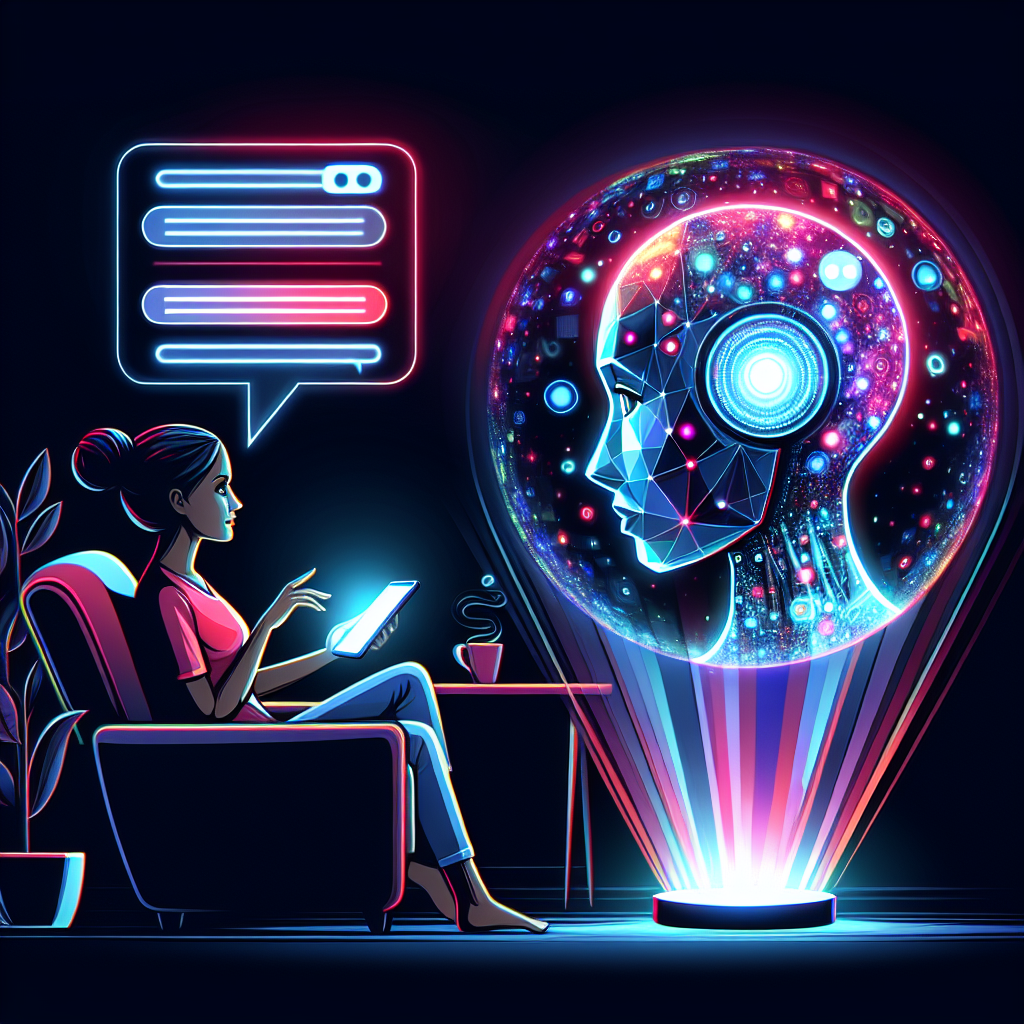The Rise of Conversational AI: How Chatbots are Transforming Customer Service
In recent years, chatbots have emerged as a powerful tool for businesses looking to improve their customer service. These AI-powered virtual assistants are revolutionizing the way companies interact with customers, providing immediate responses to inquiries and offering personalized assistance 24/7. As a result, chatbots are becoming an integral part of customer service strategies, helping businesses streamline operations, increase efficiency, and enhance customer satisfaction.
The Evolution of Chatbots
Chatbots have come a long way since their inception in the 1960s. Initially developed as simple programs that could respond to basic commands, chatbots have evolved to incorporate advanced natural language processing (NLP) and machine learning algorithms. This has enabled them to understand and respond to a wide range of customer inquiries in a more human-like manner.
One of the key advancements that has propelled the rise of chatbots is the development of conversational AI. This technology allows chatbots to engage in more natural and context-aware conversations with customers, making interactions feel more personalized and meaningful. As a result, chatbots are now able to handle a wide variety of customer service tasks, from answering frequently asked questions to processing orders and resolving complaints.
The Benefits of Conversational AI for Customer Service
Conversational AI offers a number of benefits for businesses looking to improve their customer service. Some of the key advantages of using chatbots include:
1. 24/7 Availability: Chatbots can provide immediate assistance to customers at any time of day or night, ensuring that inquiries are addressed promptly and efficiently.
2. Scalability: Chatbots can handle a large volume of inquiries simultaneously, making them an ideal solution for businesses that receive a high volume of customer service requests.
3. Cost-Effectiveness: Chatbots can help businesses reduce the costs associated with customer service by automating repetitive tasks and freeing up human agents to focus on more complex issues.
4. Personalization: Chatbots can deliver personalized responses based on customer data and preferences, creating a more engaging and tailored experience for users.
5. Increased Efficiency: Chatbots can streamline customer service processes by automating routine tasks, reducing response times, and improving overall efficiency.
6. Improved Customer Satisfaction: Chatbots can provide instant answers to customer inquiries, reducing wait times and improving satisfaction levels.
7. Data Collection and Analysis: Chatbots can collect valuable data on customer interactions, preferences, and feedback, which can be used to improve products and services and enhance the overall customer experience.
Overall, conversational AI has the potential to transform customer service by providing businesses with a scalable, efficient, and personalized solution for engaging with customers.
FAQs about Conversational AI and Chatbots
Q: What is conversational AI?
A: Conversational AI refers to technology that enables machines to engage in natural and context-aware conversations with humans. This technology is used in chatbots, virtual assistants, and other AI-powered solutions to facilitate interactions with users in a more human-like manner.
Q: How do chatbots work?
A: Chatbots use natural language processing (NLP) and machine learning algorithms to understand and respond to user inquiries. When a user sends a message to a chatbot, the bot analyzes the text, processes it using NLP techniques, and generates a response based on pre-defined rules or machine learning models.
Q: What are the different types of chatbots?
A: There are several types of chatbots, including rule-based chatbots, which follow pre-defined rules to generate responses, and AI-powered chatbots, which use machine learning algorithms to learn from user interactions and improve their responses over time.
Q: How can businesses benefit from using chatbots?
A: Businesses can benefit from using chatbots by improving their customer service operations, reducing costs, increasing efficiency, and enhancing customer satisfaction. Chatbots can help businesses automate routine tasks, handle a large volume of inquiries simultaneously, and provide personalized assistance to users.
Q: Are chatbots replacing human agents in customer service?
A: While chatbots can handle a wide range of customer service tasks, they are not designed to replace human agents entirely. Instead, chatbots are meant to complement human agents by automating repetitive tasks and freeing up agents to focus on more complex and high-value interactions.
Q: How can businesses implement chatbots in their customer service strategy?
A: Businesses can implement chatbots in their customer service strategy by identifying common customer inquiries, developing chatbot scripts and responses, integrating chatbots with their existing systems, and training their teams on how to use and manage chatbots effectively.
In conclusion, conversational AI and chatbots are transforming customer service by providing businesses with a scalable, efficient, and personalized solution for engaging with customers. By leveraging the power of AI technology, businesses can streamline their customer service operations, reduce costs, and improve overall customer satisfaction. As the technology continues to evolve, chatbots are expected to play an increasingly important role in shaping the future of customer service.

